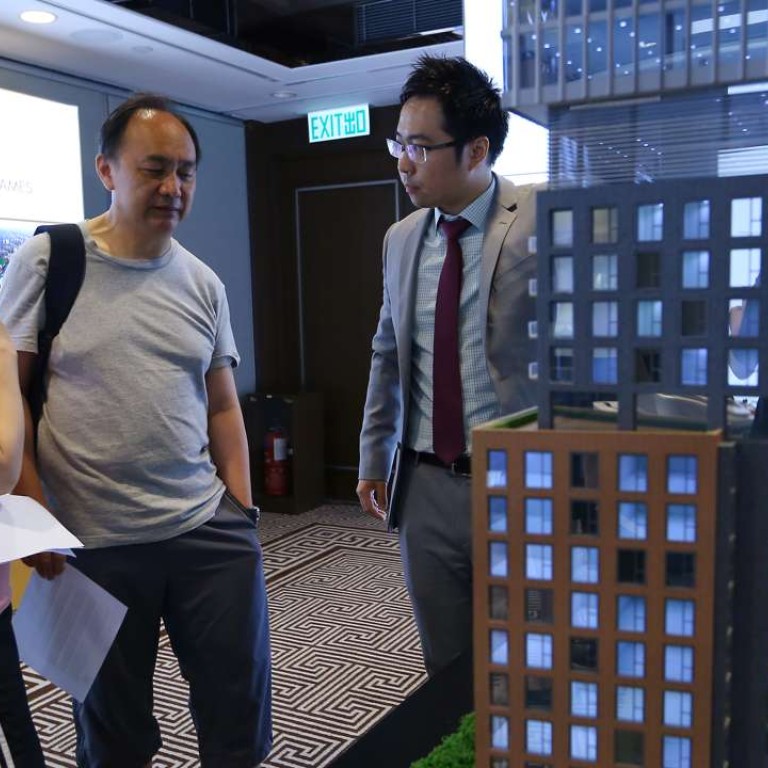
London housing probe: Hong Kong investors have cause for concern, as Mayor Sadiq Khan wants answers about scale of foreign property ownership in British capital
Speculation grows that London may follow the lead of jurisdictions such as Vancouver by moving to cool foreign property ownership
Earlier this month, London Mayor Sadiq Khan announced a comprehensive inquiry into the impact of foreign ownership on London’s housing market, sounding alarm bells in Hong Kong.
Citing “real concerns” about the scale of foreign ownership of London’s real estate, he asked the city’s housing officials to take a comprehensive look into the impact it had on the housing market.
Hong Kong investors have reason to worry as they are among the largest investors in London’s property market along with the mainland Chinese. Hong Kong buyers have spent an estimated £1.5 billion (HK$14.4 billion) on London property since the start of this year.
Although property analysts are confident that the London housing market will continue to be free and open for foreign buyers, some sceptics have suggested that it could lead to a Vancouver-like tax imposed on foreigners intending purchase real estate in the Canadian city.
Given Khan’s stance, there is speculation that London may follow the lead of jurisdictions such as Vancouver by moving to cool foreign property ownership. Vancouver, according to the Real Estate Board of Greater Vancouver, has imposed a 15 per cent foreign buyer tax. This tax has been cited as the main reason for a 33.2 per cent slump in sales in the two months since it was imposed.
The then chancellor of the exchequer George Osborne, in announcing his budget earlier in the year, said foreigners would have to pay more in tax from April 1 after the British government approved plans for a 3 per cent stamp duty surcharge on buy-to-let and second homes.
The so-called “second homes tax” requires anyone who snaps up more of London’s red-hot bricks and mortar to stump up more cash upfront.
Shortly after his election victory in May, Khan had made his intention clear that he was wary of foreigners snapping up posh London homes.
London homes were for Londoners – not “gold bricks” for wealthy foreigners, argued the former MP, who have stood for City Hall on a platform of tackling London’s housing crisis.
To date, there are no restrictions on foreigners buying homes in Britain, just as there is no official data tracking these transactions.
However, the Guardian published findings of an internal report, asserting that in a number of new developments a majority of the units were owned by overseas buyers. It cited the case of The Tower, a 50-storey London apartment complex, where two-thirds of the apartments were in foreign ownership.
Chinese buyers have been cited by Knight Frank as the dominant buyers of London residential property and, in Hong Kong, reports continue of buyers snapping up newbuild apartments at London property road shows in the city.
It would be a mistake to focus only on foreign investment when tackling London’s housing crisis. Our [latest] analysis suggests that international buyers accounted for only 7 per cent of property owned across Greater London in 2014
This has added fuel in some circles to a report this year by conservative think tank the Bow Group, in which author Daniel Valentine put a case that the future of British housing looked “very grim” unless investment money was restricted. “There is an infinite supply of global funds,” Valentine stated, asserting that “it is estimated that there are 63 million potential buyers in China alone”.
Given Khan’s stance, speculation has grown that London may follow the lead of other jurisdictions around the world by moving to cool foreign property ownership. And if so, would its market follow the likes of Vancouver?
Yolande Barnes, director, Savills World Research, cautions against such a course.
“It would be a mistake to focus only on foreign investment when tackling London’s housing crisis,” she says. “Our [latest] analysis suggests that international buyers accounted for only 7 per cent of property owned across Greater London in 2014, although it is likely to be higher in inner London hot spots.
“Importantly, overseas investment has helped bring forward nearly all the ‘affordable homes’ built in London since the 2008 financial downturn. They are also contributing much needed rented stock, with some 85 per cent of overseas investors buying with the intention of renting their properties out.”
Besides, Barnes adds, London is a city where some 36 per cent of the population was born overseas, so its property market has long had a strong international buyer presence. “It is important to view international buyer activity in this broader context. They clearly account for a larger share of the prime market, but this is itself a small 8 per cent slice of the whole London market.”
Bernie Morris, president of Britain, Europe and the Middle East for Chinese international property website Juwai.com, agrees.
“The fact is that offshore buying can be a huge stimulus for new development, which creates new supply and helps moderate price increases,” he says. “Chinese buyers can spark a housing boom, and have already started to do so in London.”
Sydney faces a similar housing shortage “and complaints of high prices”, Morris says, noting that an inquiry there found that international buyers “were vital to new housing construction”.
“Because overseas buyers are very willing to buy off the plan, they enable projects to start construction that otherwise couldn’t. That helps people who are trying to get on the property ladder for the first time.”
Morris also warns that a major tax imposed in London could “shock” the market, as it has done in Vancouver. “The Vancouver tax was imposed so suddenly and without warning that it seems like the entire market went into shock,” he says. “It made worse an eight-month declining trend in the market. Buyers and sellers are both now waiting to see what will happen.”

